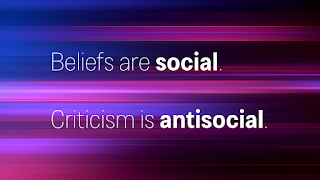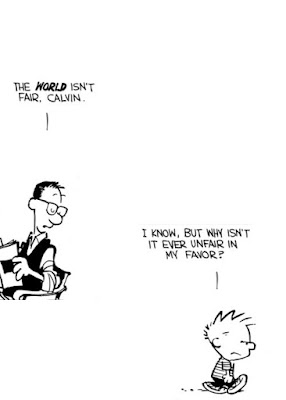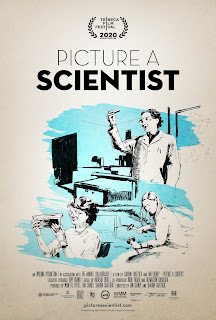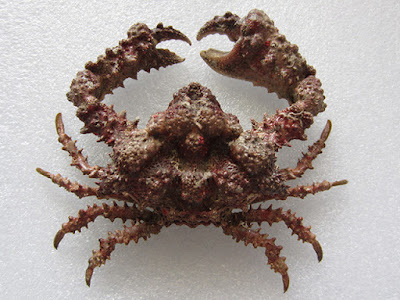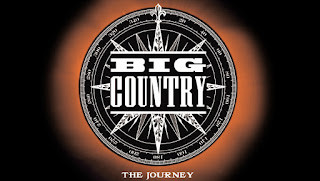Based on your field study what type of mythical beast or folk-creature would you be an expert in?
30 June 2020
Tuesday Crustie: Servant of Hera and friend of the hydra
29 June 2020
What’s a nice zoologist like you doing in a plant conference like this?
 I’ll be speaking at the Plant Biology 2020 meeting next month as part of the workshop, “Get your message across: a guide to artwork and illustrations for better impact and clarity.”
I’ll be speaking at the Plant Biology 2020 meeting next month as part of the workshop, “Get your message across: a guide to artwork and illustrations for better impact and clarity.”19 June 2020
Why people don’t believe in science and the importance of criticism
One of the problems we face in the United States is that unfortunately, there is a combination of an anti-science bias that people are—for reasons that sometimes are, you know, inconceivable and not understandable—they just don’t believe science.
15 June 2020
Failure slays first author while co-authors skate by
13 June 2020
Picture a Scientist mini-review
09 June 2020
Tuesday Crustie: Looks big
08 June 2020
Career arcs: Stay alive!
Note: There are Black Lives Matter protests. There is a pandemic. Fascism is on the rise. I don’t know how to address this in the blog right now, except to say: I want Black people not live in fear of police. As an academic, I want more Black colleagues in my profession and Black students to get higher education. I want equality and not racist policies and racist actions. I want people to wear masks and stay home so they don’t prolong the pandemic. And I want people to not put up nazis and secret police.
With that preface, please forgive a post about career paths. It isn’t the most important thing out there now. But it’s something I’ve been working on for a while.
A while ago, I stumbled across a Big Country album that had been released a few years ago. I stopped following Big Country because their lead singer, Stuart Adamson, died. I didn’t think there would ever be another album.I dug in, and found the person singing lead vocals was Mike Peters, who led another band I followed around the same time: The Alarm. Again, I had kind of stopped looking for new music from The Alarm, because Peters had quit the band – live, on stage, with cameras rolling – without telling anyone else in the band he was about to do so.
And that was pretty much that for that version of The Alarm.
It was a big inflection point for Peters’s career. He talked about it for VH1’s Bands Reunited in 2004 (about 22 minutes in on this video):
I was committing commercial and career suicide. I was leaving what I was. I was Mike Peters of The Alarm. I still am. But the only way I could find my sanity and find myself again was to actually walk away from it.
I get the sense the Peters made peace with that decision, but that he still has a lingering sense of, “What it?” Could The Alarm have been one of those big worldwide bands, like their contemporaries, U2? But maybe I’m reading too much into it.
I went looking for how Peters came to be singing for Big Country. I’ve been thinking a lot about it ever since.
Big Country’s music was inspirational for Peters when he was first in The Alarm. The video also talks about the stuff I didn’t know:
The long road back for Peters after quitting on stage, with a new iteration of The Alarm.
An epic hoax to show the ageism of the music industry.
Multiple fights with cancer.
A lot of new Alarm music that I still have to catch up on.
And being asked to front Big Country, and getting to sing the song that had changed his life years ago, “In a Big Country.”
A little after watching that video, I listened to this WorkLife podcast about career decline. The first guest, Arthur Brooks, has advice: “Walk off the stage before you fall off it.” Brooks is not optimistic that people can stay productive in careers, and suggests lots of people should turn to things like teaching instead.
Both of these, of course, made me think about where I go from here in my career.
I had spent most of the past couple of years writing a book. That meant I wasn’t gathering new data, I wasn’t working with students. After I submitted the manuscript last fall, the COVID-19 pandemic scrapped any possibility of getting back in the lab and cranking out new data any time soon.
Is this one of those inflection points that I can’t recover from? Is this that combination of personal decisions (like Peters walking away from the band) and external factors (like pop music’s embrace of hip hop and move away from The Alarm’s rock and roll) that is going to sink me for good this time?
Peters’s career does give me some hope. The Alarm has made more albums in the twenty-first century than they did in the twentieth century (back in the 80s and early 90s). He still clearly loves performing. He gives back through charity work for blood cancer, through Love Hope Strength. Next year, The Alarm will celebrate 40 years, which is an achievement to be proud of and that few artists in music reach.
And the second part of the WorkLife also talked about people who do some of the best work in their later years.
I don’t want to quit being a researcher. I don’t want to stop being a scholar. I reinvent myself as a scientist before. I hope I can do it again. As Big Country sang, “Stay alive!”
External links




